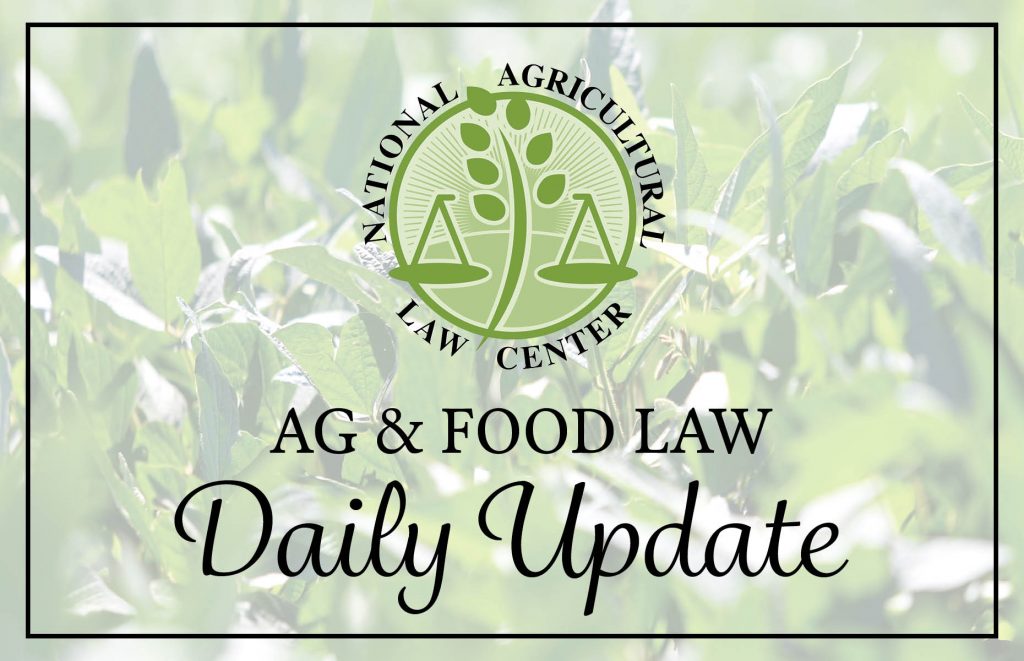A comprehensive summary of today’s judicial, legislative, and regulatory developments in agriculture and food. Email important additions HERE.
JUDICIAL: Includes CWA
In Conservation Law Found. v. H.H. Fish & Game Dep’t, No. 18-CV-996-PB, 2020 WL 1692430 (D. N.H. Apr. 6, 2020), the court considered a challenge brought by the plaintiff alleging that the defendant had violated the Clean Water Act (“CWA”) by allowing a hatchery that the defendant owned and operated to discharge pollutants into a river in violation of the facility’s National Pollutant Discharge Elimination System (“NPDES”) permit. The plaintiff alleges that the defendant was making both direct and indirect discharges in violation of its NPDES permit. The direct discharge claims are based on current and anticipated future discharges directly from the hatchery into the river. The indirect discharge claims stem from past releases of phosphorus by the hatchery that have settled into sediments at the bottom of the river and continue to leach phosphorus into the water. Upon review of the claims, the court dismissed the direct discharge claims and has directed the parties to submit additional arguments with respect to the indirect discharge claims.
The court dismissed the direct discharge claims because in late 2019, the Environmental Protection Agency (“EPA”) released a new draft NPDES permit for the hatchery. Once finalized, the permit may allow the discharges that the plaintiffs argue are currently violations of the CWA. Because the anticipated 2020 permit may moot some or all of the plaintiffs’ direct discharge claims, the court has dismissed those claims. As for the indirect discharge claims, the court notes that the plaintiffs’ arguments that the defendants have violated the CWA by allowing pollutants to enter a water of the United States through a conduit is similar to an issue that was recently argued before the United States Supreme Court in County of Maui v. Haw. Wildlife Fund.,__U.S.__(2019). Because the court anticipates that the Supreme Court’s ruling in that case may influence how it rules on the indirect discharge claims, it is asking that the parties file additional briefing to argue whether the County of Maui case should influence the court in its present decision.
REGULATORY: Includes FWS
FISH AND WILDLIFE SERVICE
Proposed rule to open, for the first time, eight National Wildlife Refuges that are currently closed to hunting and sport fishing, and to open or expand hunting and sport fishing at 89 National Wildlife Refuges. Info here.
